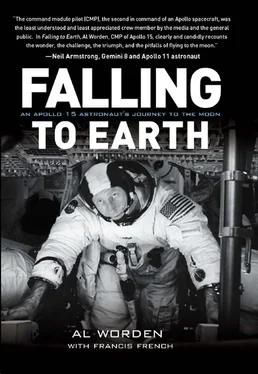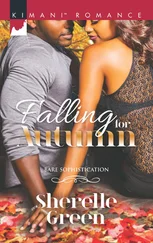The backbreaking work wasn’t done yet. Every time the wagon was full, the horses would amble back to the barn. There, we’d use a large, spiked hay fork on a block-and-tackle pulley to lift clumps of hay up to the top. The worst job of the day was to be up in the top of the stifling hot barn, moving the hay to form a level pile. I often had that chore. We worked through the process time after time, until the field was cleared. Hard work, but cheap—the only cost was food and water for the horses, and for us.
At harvesttime in August, we would quit all other work and pick cherries at other farms for two or three weeks straight. As a kid, it took forever to fill the huge wooden boxes, called lugs, but we’d get ten cents for each one. We picked mostly sour cherries, used to make jam and pies, so we weren’t tempted to eat too many of them. Most were picked by itinerant workers, who traveled from farm to farm, and they made us look like amateurs; they could pick ten times faster than we ever could. Still, ten cents a lug, it was money we needed.
When we weren’t with my grandparents, we lived on our own tiny ten-acre farm along a steep dirt road at the top of a hill, just outside Jackson. The house was small, flat topped, and I suspect it was constructed as a garage for a home that was never built, then converted into a living space. We were half a mile from the nearest paved road. We had electricity and an oil-fired furnace to stay warm, but I don’t remember a telephone. We drew much of our water from a well.
The countryside was dotted with hundreds of little lakes; I was never far from water. In the summertime, we could go boating and swimming. In the winter, there was ice-skating and ice fishing. The pastimes changed with the very distinct seasons. It could be miserably hot in the summertime and numbingly cold in the winter.
As a little kid, I had a lot of freedom. I’d walk down to the nearby railroad track and watch the steam trains go by. I’d look for deer in the woods. During the winter, the dirt road froze solid, and I’d love to slide down to the bottom or down another hillside into a frozen marsh. I did my own thing, followed my own interests, and didn’t rely on others. I wasn’t socially awkward. In fact, I was popular. Yet I never really needed anyone else. From an early age, I could look after myself, and I knew it.
I used to go off with the older kids on adventures, even when I was small. I remember a neighbor kid named Walter who was like a big brother to me, and on weekends in the winter we’d walk his muskrat trapline. He had a line of traps fifteen miles long, and yet we waded through deep snow to check them all, and earned a little money selling the hides.
Best of all, I would head alone for the rope swing hanging from a huge oak tree on the side of our hill. I could swing out fifty feet over the edge of that slope. The feeling of flying through the air, and the brief moment of weightlessness at the end, was exhilarating.
When I was eight years old, we moved into town for about three years before returning to the country again, where my parents found another farm less than a mile from where we had lived before. It was a much bigger, nicer house with two stories, five bedrooms, and a screened-in porch. The house needed some repairs, so we set to work remodeling. And my father finally had a basement, where he could hide away and tinker with his ham radio.
Everything in that house happened around the big dining table in the kitchen. I don’t even remember going into the living room, which was the formal room for visiting guests. We were outdoors all day long, so when we came home it was to eat. Anytime I was at home, my mother was bustling around in the kitchen, and the house smelled of wonderful meals being prepared. When my sisters were old enough, they started helping her in the kitchen as well as watching over the younger kids and squeezing newly washed clothes through the rollers of a mangle.
Dinner was at six o’clock. With eight people to feed, my mother needed to keep a regular time. If our farm chores weren’t finished by suppertime, we went out again after eating and worked until they were done. Even my father, who worked unusual hours because of the movie theater, would be there whenever he could. He always worked holidays, because it was the theater’s busiest time, but he made sure to spend time with his kids somewhere in the day.
Sometimes there were more than eight at the kitchen table. My parents didn’t have many friends over—other than for their monthly Pedro card game—but there were always other kids around our farm. Our house was big, open, and friendly: everyone was welcome. It didn’t make a difference who you were. If my friends were over, and it was mealtime, they joined in.
My mother was good at making food last. Many Sundays we’d kill a chicken and eat it for dinner, but that kind of meal was a luxury. Otherwise, we passed a large bowl around the table and ate whatever we were given. If we didn’t like whatever it was, tough luck, we would go hungry. If it was the first time we’d ever seen a certain food, such as the fresh Canadian oysters my father loved, he’d gently insist that we give it a try at least once. If we were reluctant, his gentle tone became a little firmer.
After we cleaned up the kitchen, it was time to study, or go to bed. We didn’t have a TV. We had a radio, but I was more interested in building my own crystal set radio than I ever was in listening to it. I loved to read, too, and devoured all the adventure books I could get my hands on.
During the day, I was at school, beginning in a one-room country school at the bottom of the hill, close to our farm. There was only one other student my age, Betty, but I didn’t hang out with her much. I absorbed a lot of learning from the older kids. There were thirty-five students in that room, all different ages. The teacher was strict, quick to use a paddle and banish one of us to the corner. The parents were completely behind her; most of us earned another whack when word of misbehaving reached home.
America declared war on Japan when I was nine years old. I was in my father’s movie theater when the news broke, and the mood was grim. Yet the conflict didn’t seem to affect a remote place like Jackson much, at least for a young kid. My father was too old to serve, and all I recall is the gas rationing for our tractor. But Walter, my close friend who laid the muskrat traplines, did join the navy, along with others I knew, and served on a destroyer. Something happened to him in the war—I never knew what—but he returned from the war strangely quiet and withdrawn.
I grew up fast. From the age of twelve, in addition to attending school, I basically ran the farm myself. I was the oldest son, but it wasn’t a family expectation. No one asked me to. I just did it.
We had ten acres, and I could easily have left it at that. Owned a couple of cows, let them graze, bought some hay for them in the winter—it would have been easy. But I imagined bigger things. I was assertive, and all the pieces soon fell into place. I grew the farm inventory until we had four cows, some goats, chickens, and ducks. I worked out a deal with the farmer next door to lease ten more acres, which I planted with corn. Then I negotiated a deal with another farmer up the hill who had an open twenty-acre field he was doing nothing with. I used the acreage to grow and cut hay, then bale it and bring it back to the farm. Goat milk was in demand back then. It is rich, doesn’t trigger the same kind of allergies as cow’s milk, and doctors recommended it to pregnant women. I didn’t make much money selling it, but every dollar helped. We soon bought a tractor, which became my favorite ride, although I had to hand-crank the engine to get it started.
I loved all of our animals, but I didn’t get attached to them. I learned at an early age that you can be as friendly as you like with animals, but you had to know that cute calf with big brown eyes would end up on your dinner plate some day. My grandfather, the softest soul I knew, adored his animals, but when it was time to butcher one, he did it himself. The only animal I grew close to was my farm dog, Tippy. He was a mutt—mostly German shepherd, we guessed—and he followed me everywhere. The animals didn’t mind him, and I did all the farm work with him padding along at my side.
Читать дальше












